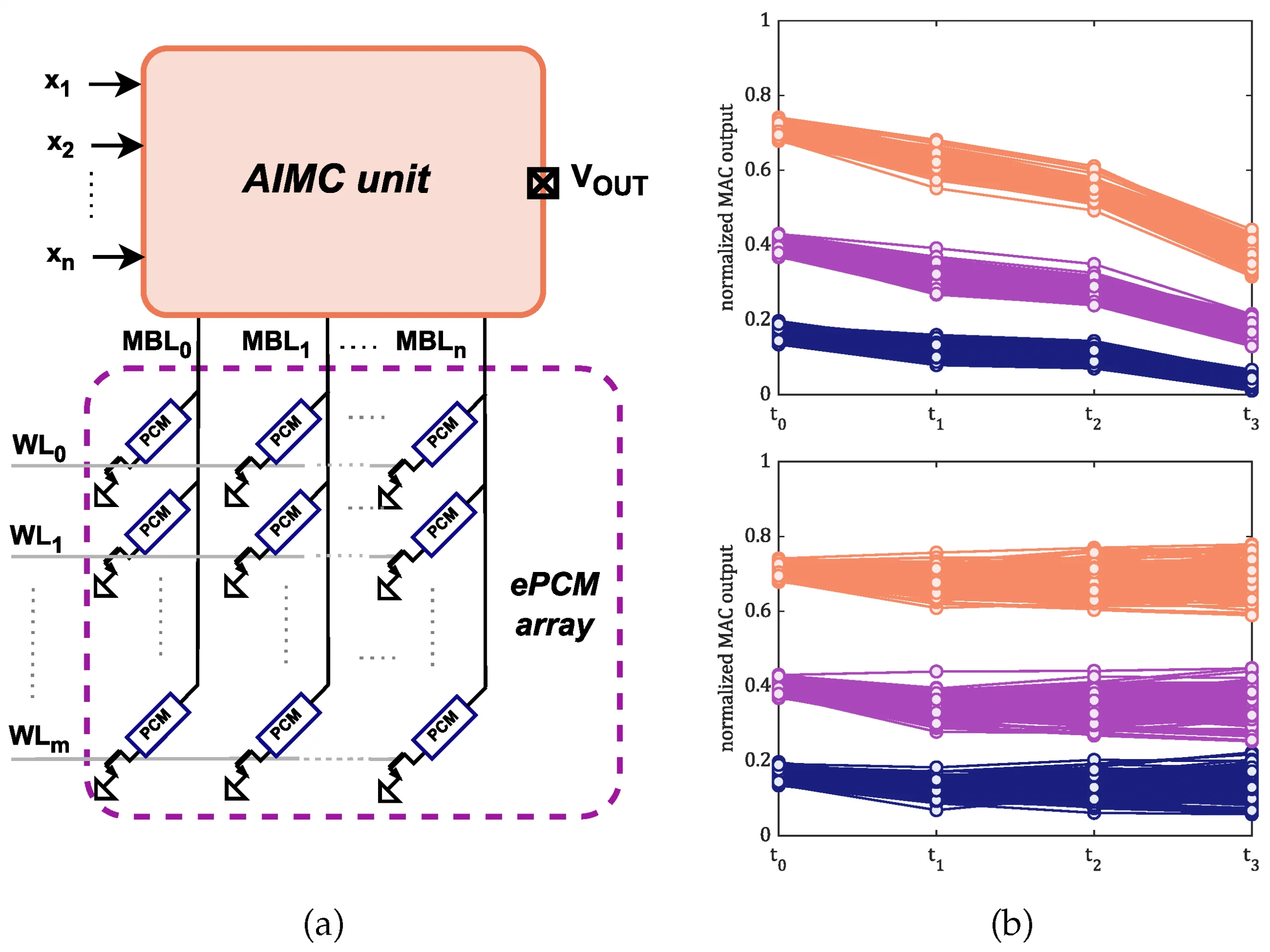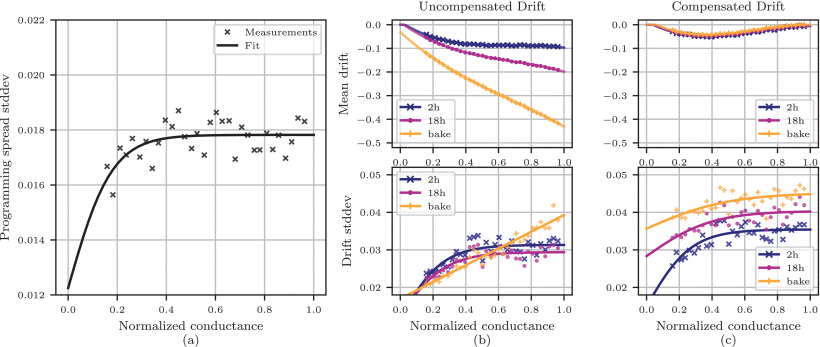Two new papers published by IUNET, the Italian Inter-UNiversity consortium for Nanoelectronics within the StorAIge project!
Decoding Algorithms and HW Strategies to Mitigate Uncertainties in a PCM-Based Analog Encoder for Compressed Sensing
Paolino et al.
Low Power Electron. Appl. 2023, 13(1), 17; https://doi.org/10.3390/jlpea13010017 – https://cris.unibo.it/handle/11585/915281
Abstract :
Analog In-Memory computing (AIMC) is a novel paradigm looking for solutions to prevent the unnecessary transfer of data by distributing computation within memory elements. One such operation is matrix-vector multiplication (MVM), a workhorse of many fields ranging from linear regression to Deep Learning. The same concept can be readily applied to the encoding stage in Compressed Sensing (CS) systems, where an MVM operation maps input signals into compressed measurements. With a focus on an encoder built on top of a Phase-Change Memory (PCM) AIMC platform, the effects of device non-idealities, namely programming spread and drift over time, are observed in terms of the reconstruction quality obtained for synthetic signals, sparse in the Discrete Cosine Transform (DCT) domain. PCM devices are simulated using statistical models summarizing the properties experimentally observed in an AIMC prototype, designed in a 90 nm STMicroelectronics technology. Different families of decoders are tested, and tradeoffs in terms of encoding energy are analyzed. Furthermore, the benefits of a hardware drift compensation strategy are also observed, highlighting its necessity to prevent the need for a complete reprogramming of the entire analog array. The results show >30 dB average reconstruction quality for mid-range conductances and a suitably selected decoder right after programming. Additionally, the hardware drift compensation strategy enables robust performance even when different drift conditions are tested.
Combined HW/SW Drift and Variability Mitigation for PCM-based Analog In-memory Computing for Neural Network Applications
Antolini et al.
EEE Journal on Emerging and Selected Topics in Circuits and Systems, vol. 13, no. 1, pp. 395-407, March 2023, doi: 10.1109/JETCAS.2023.3241750 – https://cris.unibo.it/handle/11585/913711
Abstract:
Matrix-Vector Multiplications (MVMs) represent a heavy workload for both training and inference in Deep Neural Networks (DNNs) applications. Analog In-memory Computing (AIMC) systems based on Phase Change Memory (PCM) has been shown to be a valid competitor to enhance the energy efficiency of DNN accelerators. Although DNNs are quite resilient to computation inaccuracies, PCM non-idealities could strongly affect MVM operations precision, and thus the accuracy of DNNs. In this paper, a combined hardware and software solution to mitigate the impact of PCM non-idealities is presented. The drift of PCM cells conductance is compensated at the circuit level through the introduction of a conductance ratio at the core of the MVM computation. A model of the behaviour of PCM cells is employed to develop a device-aware training for DNNs and the accuracy is estimated in a CIFAR-10 classification task. This work is supported by a PCM-based AIMC prototype, designed in a 90-nm STMicroelectronics technology, and conceived to perform Multiply-and-Accumulate (MAC) computations, which are the kernel of MVMs. Results show that the MAC computation accuracy is around 95% even under the effect of cells drift. The use of a device-aware DNN training makes the networks less sensitive to weight variability, with a 15% increase in classification accuracy over a conventionally-trained Lenet-5 DNN, and a 36% gain when drift compensation is applied.





